Do Quakers Read the Bible?
It’s one of the most asked questions about the faith: “Do Quakers read the Bible?”. The answer is complicated, as this single book has been used as both a brutal weapon and a profound source of liberation. This episode dives into that paradox, examining a faith that places a living Spirit above the written word. This distinction gives people permission to wrestle with the text, to question its authority, and even to find faith in walking away.
Subscribe so you don’t miss an episode!
Leave a comment below to share your stories and thoughts!
Monteverde, Costa Rica — January 15-20, 2026
A Quaker-Led, Interfaith Spiritual Retreat
Amid the mist and quiet beauty of a mountaintop cloud forest, Earth & Ember invites spiritual seekers and contemplatives to explore how our lives can be rooted in compassion and peace–while still engaging with a world marked by injustice, greed, and cruelty.
Each day offers centering practices, meaningful participation in our rainforest community, rich spiritual conversation, and the wisdom of local scientists, artists, and peacemakers.
Learn more at www.earthnember.com
Discussion Questions
- The episode opens with the story of George Fox being hit with a Bible and contrasts the Bible as a “weapon” with the Bible as a source of “life”. Where have you seen or experienced this tension in your own life or community?
- Peterson Toscano describes a spectrum of reactions to the Bible, from those who are “super curious” to those who “fled the room in terror”. Which of these reactions do you most identify with, and how has that relationship changed over time?
- The episode highlights three paths for engagement: as literature (Scholar’s Path) , as story (Pastor’s Path) , and as play (Artist’s Path). Which of these paths feels most inviting to you right now? What path would you add?
Zack Jackson
On the first day of the week, sometime in 1651, George Fox, entered the town of Tickhill in the North of England. Fox, who was one of the primary founders of what would later be known as Quakerism, was there to attend a meeting for worship, but while he waited in silence, he felt a leading from the Spirit that he was supposed to leave the meeting, walk to the main church of the town and speak with those who were gathered there.
Now, as we talked about earlier this season, Fox and the early Friends were known to disrupt church services across England, often coming in during the sermon to argue with the ministers, so his reputation preceded him. We will never know what he had planned for that particular day, because he never got a word out.
As he approached the priest and the town’s chief figures who were gathered together inside, he opened his mouth to speak, but was abruptly interrupted by the parish clerk, who, upon recognizing him, picked up the heavy Bible from the altar and bashed him across the face with it. Fox later wrote in his journal that his face “gushed out with blood, and I bled exceedingly in the steeple-house”.
And that’s a story that… unfortunately, many of us can relate to. The Bible, which, for many Quakers, is an important source of inspiration, has unfortunately been used as a weapon against so many others.
How do we resolve that tension? Should we resolve that tension? What does a faithful Quaker response to the Bible look like and how would someone even begin to engage with a book that is already so laden with thousands of years of other people’s ideas, agendas, and outright manipulation? I spoke with three Quakers about how they approach the Bible, and I think their answers might surprise you.
Zack Jackson
This tension sits at the very heart of the Quaker relationship with scripture. In fact, one of the most Googled questions about Quakers is “Do Quakers read the Bible”? And just like any question that starts that way, the answer is complicated . It’s complicated because, for as many Quakers as there are, you’ll find just as many relationships to this book. Podcaster and performer, Peterson Toscano, has seen this full spectrum firsthand.
Peterson Toscano
At New England Yearly Meeting Friends General Conference, they have a standard Bible Half Hour series of lectures that’s super popular, yet I start to tell a presentation to some Quakers, and there were some who fled the room in terror because they had been abused by the Bible or they only ever heard it used that way. I had people who were super curious but afraid of it or overwhelmed by it.
Zack Jackson
This experience of the Bible as a weapon is a painful reality for so many. Here’s classics scholar Sarah Ruden.
Sarah Ruden
This is a particularly bad moment to be purveying the Bible to oppressed people. When the Bible has substantively become a weapon, you can’t make it into anything but a weapon, in the eyes of people who’ve been wounded by it.
Zack Jackson
To the clerk who attacked Goerge Fox, that Bible was a weapon to keep people in line, but to George Fox himself, that book was life. Every sentence he spoke was informed by the Bible. It was said of him that “though the Bible were lost, it might be found in the mouth of George Fox”. When I spoke with Peterson, he noted that if you read the early Friends…
Peterson Toscano
their writings are remixes of Scripture.
Zack Jackson
And it wasn’t just them. For millennia, this same book, often used for oppression, has also been a source of profound liberation. When I spoke with pastor Ashley Wilcox, she pointed to the long line of Hebrew prophets.
Ashley Wilcox
I love the prophets, and their message is almost always, take care of the widow and the orphan and allow the people who have come into your land to be there and be protected. And I think that people who are using the Bible against those impoverished or marginalized people are not reading the full message of Scripture.
Zack Jackson
As we talked about earlier this season, the Hebrew prophets were like a fuel source for the likes of Benjamin Lay and other Quaker abolitionists. They were outraged that enslavers were using the Bible to justify kidnapping and torture while completely ignoring the commands to do justice and walk humbly. So how did they do it? How did they hold a book that has been used both as a weapon and as a source of life and liberation?
Ashley Wilcox
So early, Friends believed that we could read the Bible in the same spirit that it was written and so trusting that the Spirit of God will be with us as we read the Bible and help us to interpret it. So that is a very different approach, I think, than a lot of folks who believe the Bible as inerrant or unchanging. We believe that God can help us to interpret it for today.
Zack Jackson
It’s a subtle, but important distinction. The Spirit is the authority, not the book. The book, though inspired by the Spirit, does not contain the Spirit. It is the conduit, not the electricity.
This is the idea that changes everything. It means the Bible isn’t a static, flat, inerrant rulebook. It’s a living text. It’s a record of humanity’s messy, complicated relationship with God and each other… a book that, yes, contains violence and coercion, but also profound love and freedom.
And this messy, often contradictory nature is evident in the very pages themselves, as Ashley points out.
Ashley Wilcox
And I think we can see that within the Bible, that it contradicts itself, that people argue with God in it, that people reject things from the Bible and from God, you see the Proverbs giving advice that is contradicted in other places, such as only mary those within Israel. And then we have books like Ruth, where a woman who is outside of Israel is the one who is the hero of the story. So there are all sorts of contradictions within the text, and then I’ve had people really take me to task, because they want those stories to have an easy message, and they don’t, but they are part of our Bible, and so I think that engaging them on their own terms and struggling against them is a faithful way to approach the Bible. Of these are things that do happen, and our Scripture is a record of that. And so it’s better than avoiding them all together and pretending they don’t exist in the Bible and in our lives.
Zack Jackson
And so for Quakers who are looking to engage with the Bible, this is the key. If the Spirit is still speaking, then we’re allowed to wrestle with the Bible. We’re allowed to question what people have said about it, and even what it says about itself.
Peterson Toscano
And that is one of the big differences between the Christian tradition and the Jewish tradition. The Christian tradition typically has some authority, the church a minister who says, “This is what this passage means”. While the Jewish tradition is like, “Well, you know, Rabbi so and so says it means this. Rabbi so and so says this can mean this. What do you think?” And there’s much more of an open hand and a humility of saying we don’t know what the author’s original intent was, and we don’t even know if that’s important.
Zack Jackson
But this core idea—that the Spirit is primary—also means that for some, a faithful response might be to walk away.
Peterson Toscano
When I first came out, I couldn’t read the Bible because my brain had been hacked by the interpretations that I was given of what these passages meant. When I first came out, I couldn’t read the Bible. I just kept on getting like slapped by and so I had to look to other texts, and Walt Whitman’s Leaves of Grass became a sacred text to me. It. fed my mind, my heart, my soul, my body. I mean, I would read it and I would feel invigorated by it.
Zack Jackson
Wrestling with the text, or walking away. Both are faithful responses. There is no one, single way for Quakers to faithfully read the Bible, and so, after the break, I want to introduce you to three ways that Quakers are engaging with the Bible. As literature, as story, and as play. Stay tuned.
Zack Jackson
Hey, friends, if you’re feeling burnt out from the fight for peace and justice, I want to tell you about a spiritual retreat that’s coming up. It’s called Earth and Ember, and it’s happening this January 15th through 20th in Monteverde, Costa Rica. I had the chance to speak with founders Tom Cox and Rand Smith, and they were clear, this is not a vacation. It’s also not a prepackaged self-help program with a scenic backdrop thrown in. Tom and Ran live in Monteverde, and this retreat is designed to share the deep wisdom of the community and the land itself.
Tom Cox
To us, Monteverde is our guru. It teaches us so much. The people who are here teach us so much. We teach each other, we work together, we build a community.
Zack Jackson
Monteverde has a deep Quaker history, and the retreat is built around that heritage.
Tom Cox
70 years ago, a group of Quakers came up here and settled on top of a mountain. They left the US because of their peace testimony, they refused to… they didn’t want to participate in war or the military industrial complex anymore, and they came in, they settled and they stayed, because they found a place that was kind of magical. And we felt it was time to create a retreat, to get in touch with themselves and to get in touch with nature and to experience deep community together.
Zack Jackson
So, it’s a six-day, five-night retreat from January 15th through the 20th, 2026 and when they say it’s designed for focus, they mean it. The organizers have taken care of everything.
Ran Smith
From the moment that they arrive in country, everything is taken care of. It’s just worry free.
Zack Jackson
But worry free doesn’t mean easy. Ran was clear that this is a challenge in the best way possible.
Ran Smith
I mean, if they want to go on a vacation afterwards, they can, but we’re going to, we’re not going to make it too easy on them. I mean, I think tough questions need to be asked of all of us right now, and I’m not going to shy away from the tough questions.
Zack Jackson
So, if you’re feeling spiritually hungry, then this retreat is for you. You can learn more, see photos of the beautiful space, and register at their website.
Tom Cox
It is earthnember.com There’s no “and” in there, it’s an “n”, just the “n” of the “and”. So it’s earthnember.com.
Ran Smith
If you can’t make it in January, then let us know and sign up for the spring or the summer one as well.
Zack Jackson
That’s earthnember.com spots are limited, so register now for this life changing experience. And now back to the show.
Zack Jackson
Before the break, we landed on this core Quaker idea: The authority of scripture comes not from the words on the page, but from the Spirit in the words. This frees us to engage the Bible in all sorts of ways. I want to bring you three of those paths that my guests shared with me, starting with a path we might call Scholar’s Path, or, engaging the Bible as literature.
This path is embodied by classicist and Biblical translator, Sarah Ruden. For Sarah, this isn’t just about “pretty words.” It’s about finding a text that speaks with profound honesty to the deepest parts of the human condition.
Sarah Ruden
You know, great literature is about experience. It’s about the truth of experience. And you know, the tragedy of human life is is so real. The older you get, I think the more real it gets. And so you know, to speak to human tragedy, Human Comedy in gorgeous language that we can dance to. This is what Vicki Hoffer taught me at Yale Divinity School. Yeah, there is no greater delight than that. So if you want to, you know, get to know the Bible. Don’t do it because, you know, we say, so do it. Do it because this is gorgeous, you know, and don’t let it. Let us, you know, keep this all to our, to ourselves.
Zack Jackson
When you read the Bible as literature, the point isn’t about following a rule or winning an argument. The point is the experience itself: letting the language and the poetry connect to your experience, to your own sense of tragedy and comedy. It’s about connecting with a text that, as Sarah describes it, is a source of pure delight.
Sarah Ruden
If you want to be engaged with it as literature, you know, without, I think, any danger that it would undermine your true faith, you know, your humble relationship with God, then get to know the Bible better, you know, do it. You know, don’t do it because we say it’s a wonderful book, but do it because it’s a theme park. You know, it is, it is just, it is just a series of such delights.
Zack Jackson
Our second path is the Pastor’s Path, or engaging the Bible as story. This is the work of pastor Ashley Wilcox. She told me that when she was preaching regularly, she noticed a problem with the Revised Common Lectionary… which is a three year cycle of Biblical readings that many churches use in worship.
Ashley Wilcox
But what I found was there weren’t a lot of the stories about women and those texts. And so I was talking about this with my spouse, and he suggested that I write my own lectionary, which I did, and it’s called “The Women’s Lectionary: Preaching the Women of the Bible Throughout the Year”, and I found in doing this, I got to dig deep into these stories about women. And my understanding of the Bible now is a collection of writings of people over millennia who are trying to engage with God, and if we leave out the stories of women, then we don’t understand all the ways that God is engaging with people.
Zack Jackson
I asked Ashley what advice (or warning) she might have for people who are wary of the Bible
Ashley Wilcox
Rather than warnings, I would suggest they start with stories. And so the book of Esther is a really good example of that, because the stories are a good way in and they show the mystery of the Bible that there is not just one way of understanding this. I think too often we tend to see the Bible as either a rule book or as a text that has neat little morals, and it’s not either of those things.
Zack Jackson
So we have the path of the scholar, and the path of the pastor. The third path is perhaps the most subversive: The Artist’s Path, or engaging the Bible as play. This is the world of artist and performer Peterson Toscano. For him, this path grew directly out of his own life story.
Peterson Toscano
I have a very complicated personal relationship with the Bible in that I was a born again Evangelical, conservative, anti gay Christian for many years. When I came out gay, I had to figure out what to do with the Bible because it was embedded in my brain. Is it something that I just try to just walk away from completely, or is there something I can do to have a creative dialog with it?
Zack Jackson
Peterson chose creative dialog, and for him, that often looks like play.
Peterson Toscano
There’s so much fear that is in American Christianity and in handling the Bible, and that fear undermines critical thinking, so anything you can do to decrease the fear when approaching text is really critical
Zack Jackson
For Peterson, this “play” has taken many forms… From plays and stories to a comic book about the adventures of Jesus’ afterbirth. But perhaps the most vivid example came during a performance where he was thinking about all the specialized Bibles you can find in Christian bookstores.
Peterson Toscano
…like the Children’s Bible, the grandmother’s Bible, the women’s Bible, there’s like a man’s Bible that is with a camo cover that is waterproof.
Zack Jackson
He told the audience that even with all of those options, he felt there wasn’t one for him.
Peterson Toscano
And I decided on stage that I needed to design my own Peterson Bible. And with a little help from the audience, I take out a Bible, and I’ve got some stickers, and I put Peterson across the top Peterson’s Bible, and I put some sparkly things on it, because I’m kind of sparkly and all. And I was like, This is good, but there’s still something that I need to do. And then I take out a drill with a drill bit that was about the size of a bigger than a walnut, all perfectly round and on the stage in front of the audience, I drill a hole through the Bible, and it creates this perfect round hole in the Bible that I hold up.
And audiences often were just shocked at this act, and I explained, well, the reality is, whoever goes to the Bible, they’re taking things in, you know, they’re taking things out. They’re overlooking things. You know, no one’s literally leaving everything in, and that’s got to be just acknowledged. And so the Peterson Bible has a hole in it, a big hole in it, because we can’t take everything literally. And we, you know, can’t even take everything, I mean, some of it is horrific.
But then I took the little pieces that came out there were like little petals, and I put them in a basket, and I exited the show with some music I can’t remember it was now playing like I was a flower girl strewing these petals over the audience, which were beautiful and had these little samples that people could take away, that I know to this day people still hold on. They’re like, I have that little piece that you I got, and to me that that as an artist, was a statement about our relationship to the Bible that we can’t be so precious about it and so afraid of it. It.
It is not even a book. It’s a library of many books, and it doesn’t fit in our modern life in any easy way. It needs more than an interpretation of language, but of culture, and it’s complicated, and it’s okay if you never go to it, or if you only read part of it, there’s other books out there to read, and the inspiration can come from anywhere.
Zack Jackson
The scholar, the pastor, and the artist. Three ways that people have chosen to wrestle with this text, all made possible by that core Quaker idea that the Spirit is the one who guides us. Each one of these paths is valid, but each path is also incomplete on its own… And maybe that’s the point. No single person, no single method, holds the entire picture. As with so much in Quaker life, the fullness comes when we bring our individual insights together, into community.
Ashley Wilcox
So a Quaker can study the Bible as an individual, but we do many things in community, and we believe that we can listen to God together in community and help interpret what is correct and what is not.
Zack Jackson
Listening together. Helping each other interpret. Or giving each other the permission to walk away from it altogether. That’s how we navigate the paradoxes, the pain, and the profound life found within this book. And maybe you have your own path, your own way of wrestling with, or perhaps choosing not to engage with, the Bible. We’d love to hear about it. Send us a note or a voice memo and let us know how do you engage with scripture?
Zack Jackson
Thank you for listening, and thank you to our guests, Sarah Ruden, Peterson Toscano, and Ashley Wilcox. For discussion questions and a transcript of today’s episode, make sure you check out Quakerpodcast.com and while you’re there, be sure to subscribe so you don’t miss a thing. This episode was hosted, produced and edited by me Zack Jackson, Jon Watts wrote and produced the music. Thee Quaker Podcast is a part of Thee Quaker Project. We are a nonprofit Quaker media organization dedicated to giving Quakerism a platform for the 21st Century. If you like what we’re up to, please consider becoming a monthly supporter. You can go to Quakerpodcast.com and click support in the top right window. Takes less than five minutes, and we really appreciate it. And now your daily Quaker message as read by Grace Gonglewski.
Grace Gonglewski
Francis, Irene Tabor, 1987 the first generation of friends came upon a faith which cut to the root of the way they saw life, radically reorienting it. They saw that all they did must flow directly from what they experienced as true, and that if it did not, both the knowing and the doing became false. In order to keep the knowledge clear and the doing true, they stripped away anything which seemed to get in the way
Zack Jackson
to get Quaker wisdom in your inbox Every day, go to dailyquaker.com that’s dailyquaker.com.
Hosted, produced, and edited by Zack Jackson.
Original music and sound design by Jon Watts (Listen to more of Jon’s music here.)
This season’s cover art is by Todd Drake
Supported by listeners like you (thank you!!)
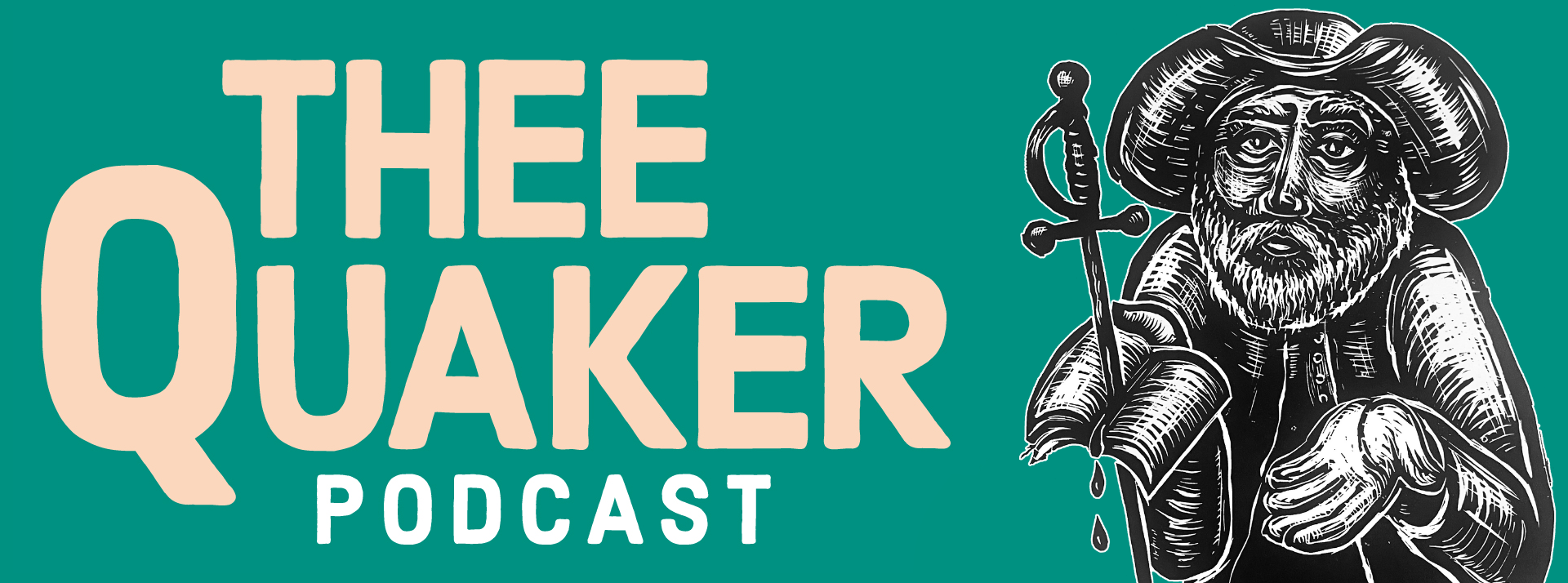

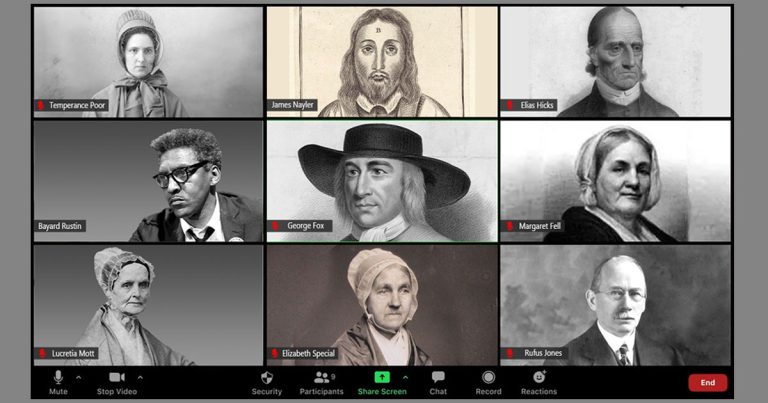
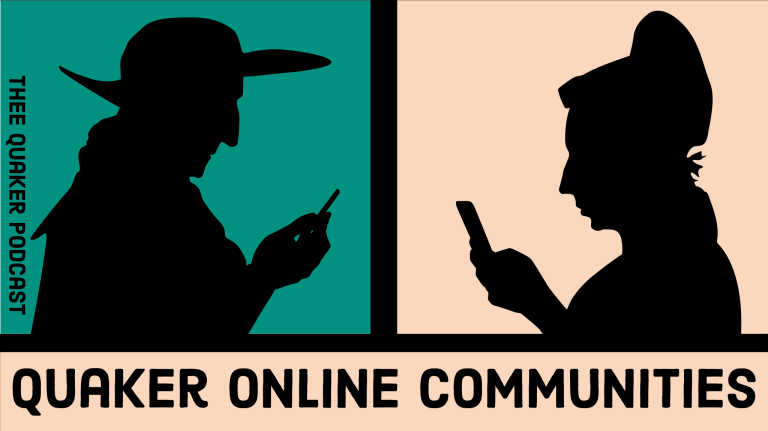
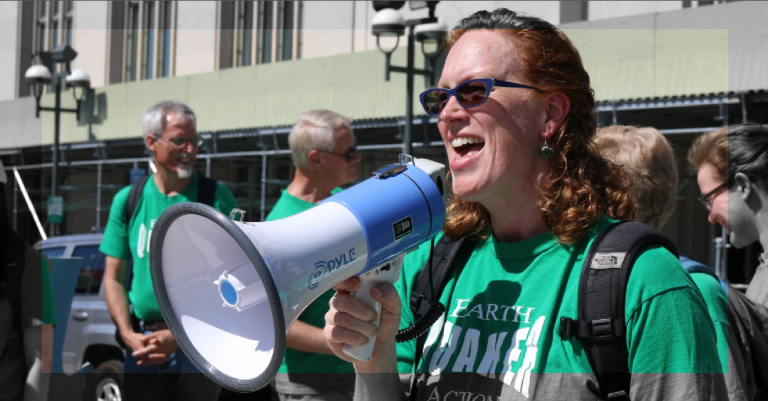
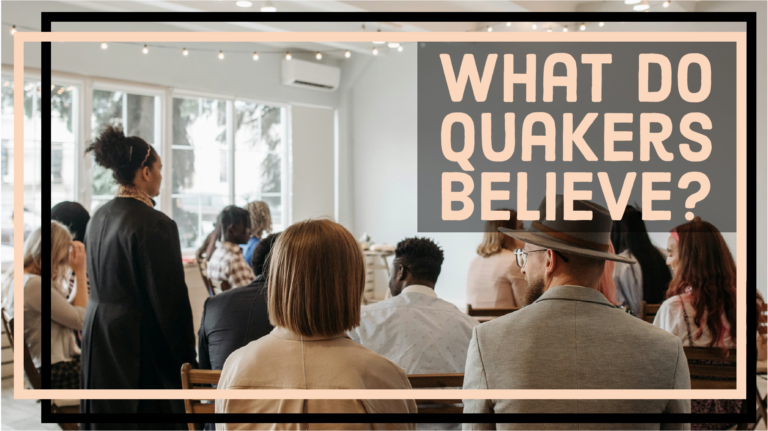

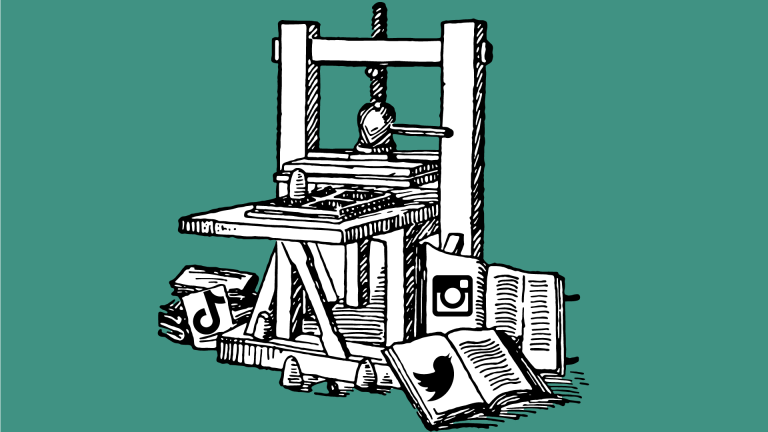
In response to the question of how we engage with scripture:
The “Illuminate” Bible study series from Barclay Press (a “Bible study curriculum written by Friends and for Friends”) is a great resource. I find writing “Friendly Perspectives” on scripture for “Illuminate” brings together exegesis and reflection on my faith as a Friend.
We might also consider how we share our faith and practice — and in this case, the Bible — with our children. Since 2010, almost 500 Friends from 100+ meetings in 20 US yearly meetings and associations, across 30 states, have attended training to use a scripture-based curriculum in their meetings: Godly Play. The workshop focuses on how we nurture the spiritual lives of children through story and play — the native languages of childhood. Hundreds of Quakers have invested time to learn about a way for their children to explore the Bible in a guided approach that invites wonder and where children are accompanied in theological reflection — not told “answers” or given the “meaning.” Godly Play includes stories from the Hebrew Bible and Christian New Testament (and is used by Friends along with Faith & Play stories that focus on Quaker faith, practice, and witness). Because wondering questions invite continuing revelation, its use in meetings has also been healing for many adult Friends. There is no “authority of scripture” — there is listening and wondering together in community. Spirit is present in that process. Adults leading these story experiences make space for all kinds of questions, and share when we’re also wondering about them, modeling life-long spiritual formation.
https://quakerfaithandplay.org/wp-content/uploads/2025/05/FP.GP-for-Friends-Description-2025.pdf
Thank you for the incredibly thoughtful response, Melinda. We’re planning a future episode on children and Quakerism next year, and this sounds like a really great resource to bring to the center of that conversation.
Thanks, Zack! I’m delighted to know there will be an episode focused on children and Quakerism. My public ministry is under the care of West Chester Meeting (PhYM) and focuses on the spiritual lives of children, intergenerational worship, and welcome for families. I’m currently the only active Godly Play trainer who is a Quaker, and I serve as the Director of Training and Communication for Faith & Play Stories. Would love to connect.